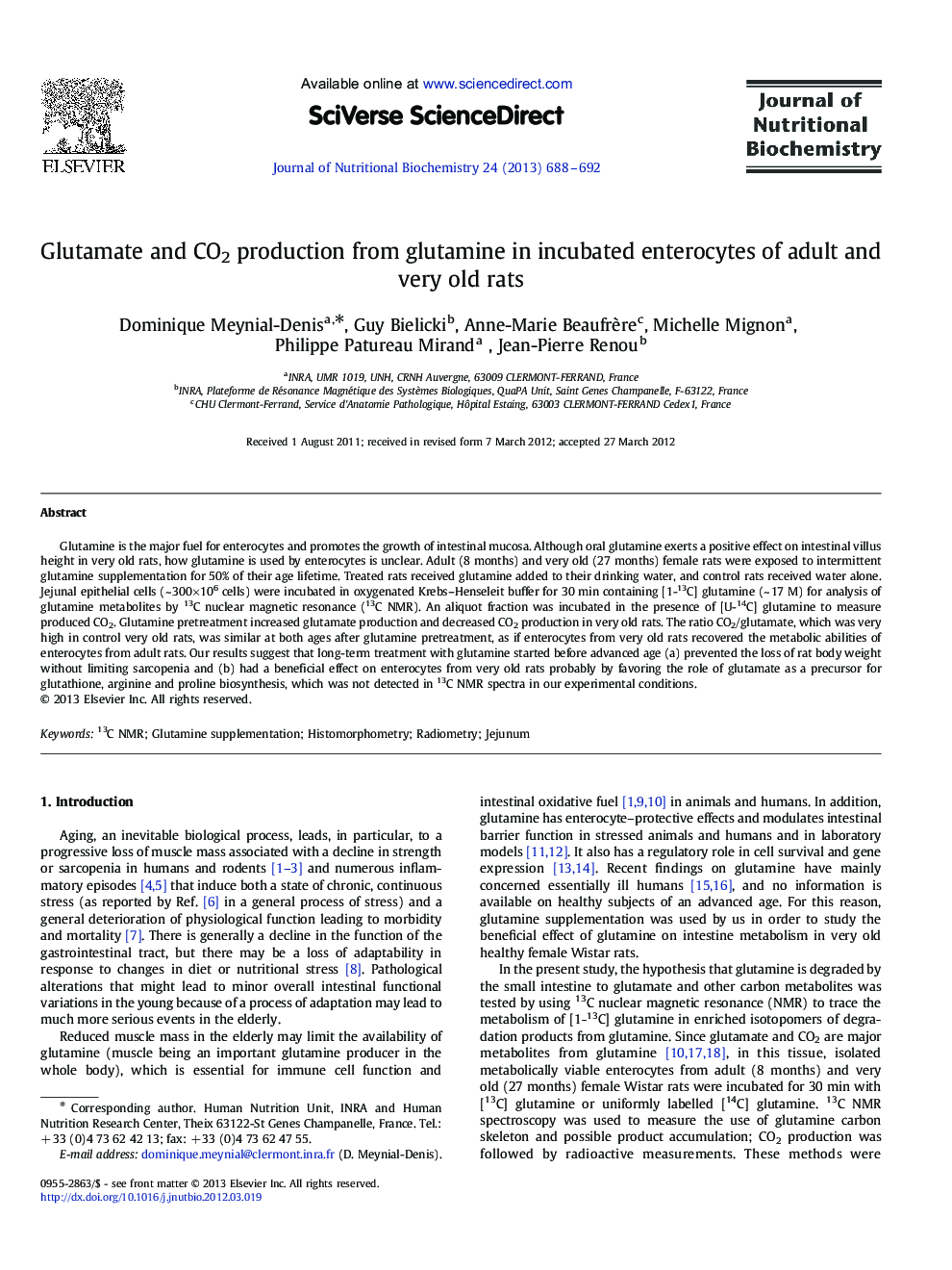| Article ID | Journal | Published Year | Pages | File Type |
|---|---|---|---|---|
| 1990098 | The Journal of Nutritional Biochemistry | 2013 | 5 Pages |
Abstract
Glutamine is the major fuel for enterocytes and promotes the growth of intestinal mucosa. Although oral glutamine exerts a positive effect on intestinal villus height in very old rats, how glutamine is used by enterocytes is unclear. Adult (8 months) and very old (27 months) female rats were exposed to intermittent glutamine supplementation for 50% of their age lifetime. Treated rats received glutamine added to their drinking water, and control rats received water alone. Jejunal epithelial cells (~Â 300Ã106 cells) were incubated in oxygenated Krebs-Henseleit buffer for 30 min containing [1-13C] glutamine (~Â 17 M) for analysis of glutamine metabolites by 13C nuclear magnetic resonance (13C NMR). An aliquot fraction was incubated in the presence of [U-14C] glutamine to measure produced CO2. Glutamine pretreatment increased glutamate production and decreased CO2 production in very old rats. The ratio CO2/glutamate, which was very high in control very old rats, was similar at both ages after glutamine pretreatment, as if enterocytes from very old rats recovered the metabolic abilities of enterocytes from adult rats. Our results suggest that long-term treatment with glutamine started before advanced age (a) prevented the loss of rat body weight without limiting sarcopenia and (b) had a beneficial effect on enterocytes from very old rats probably by favoring the role of glutamate as a precursor for glutathione, arginine and proline biosynthesis, which was not detected in 13C NMR spectra in our experimental conditions.
Related Topics
Life Sciences
Biochemistry, Genetics and Molecular Biology
Biochemistry
Authors
Dominique Meynial-Denis, Guy Bielicki, Anne-Marie Beaufrère, Michelle Mignon, Philippe Patureau Mirand, Jean-Pierre Renou,
